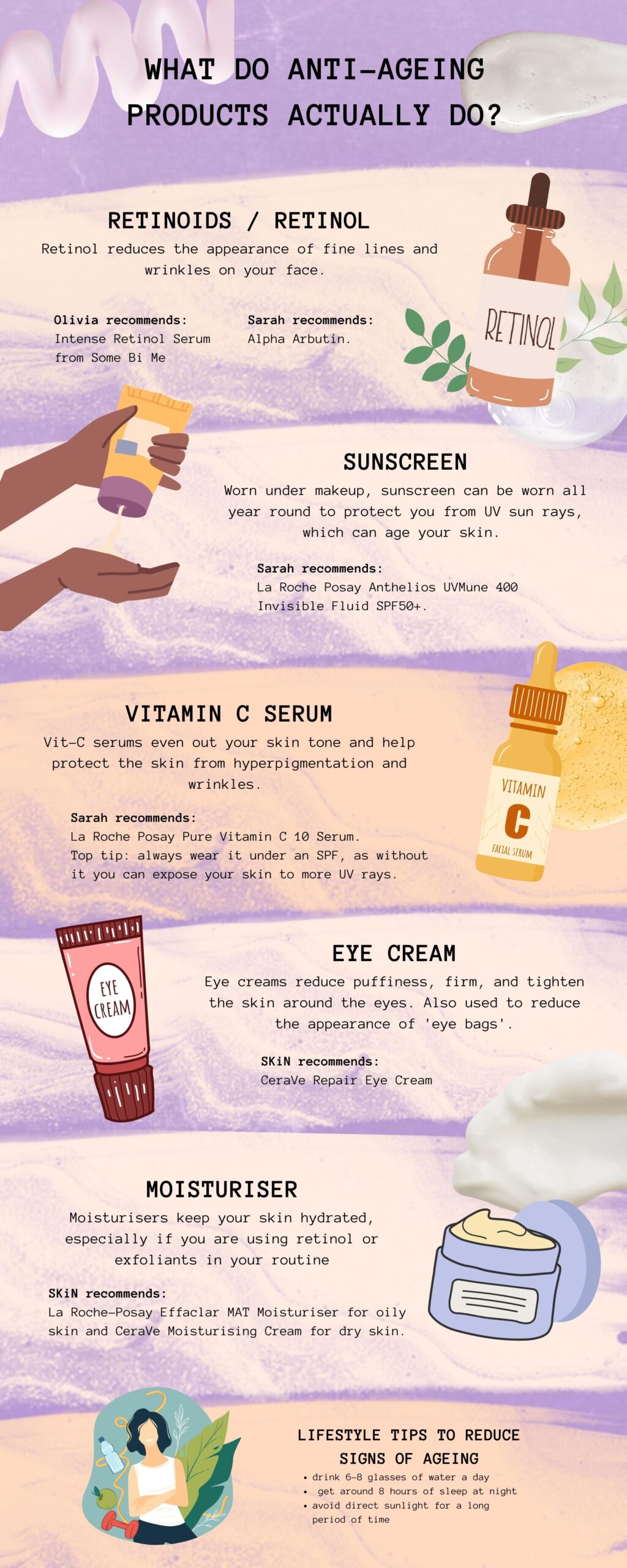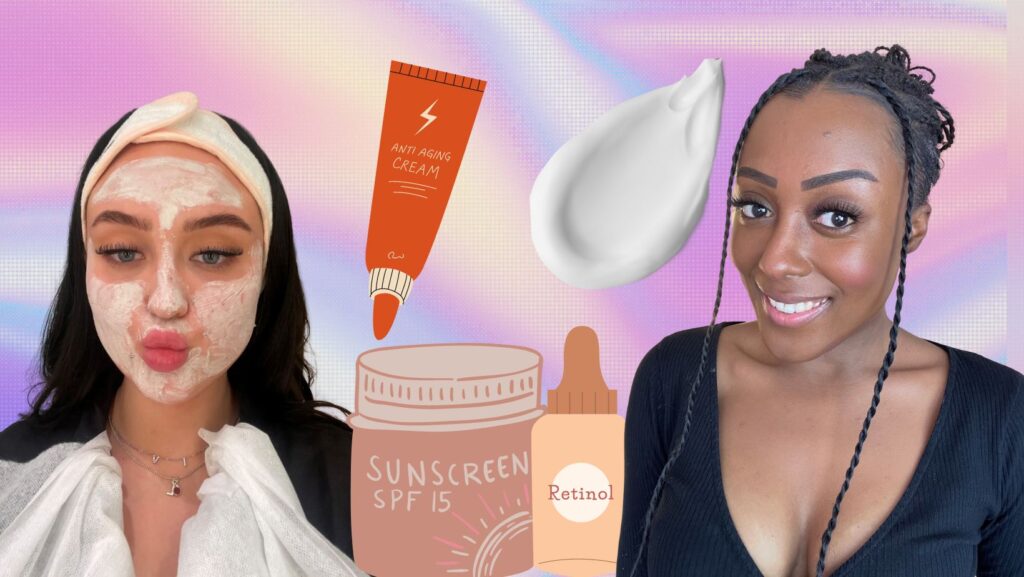It’s no secret that Generation Z, otherwise known as ‘digital natives’, have been exposed to constantly changing beauty trends through the onslaught of influencer selfies and 17-step makeup routines on YouTube. The newest movement in the pursuit of modern-day perfection is all about the anti-ageing skincare routine. With a few years indoors quarantining, and spare time and access to the online world, Gen Z has been branded by cosmetic giants as ‘skintellectuals’; they are much savvier when it comes to knowing the ins and outs of skincare.
The glam makeup style of the mid-2010s has stepped aside for a more natural look. One of the most recent movements in this online skincare world is the use of anti-ageing products. Online skinfluencers have popularised retinoids, eye creams and serums with a “better to start early and prevent the signs of ageing” attitude.
Gen Z have been buying anti-ageing products at an earlier stage in their lives than any other age group. A report by The Benchmarking Company released this April found over half of their Gen Z respondents first had concerns over their skin ageing at the age of 23, leading them to buy products to combat this. Millennials, on the other hand, started to buy anti-ageing skincare around the age of 35.
“I know that ultimately I will age and be wrinkled, no amount of skincare will stop that, but if I can delay the process then I will”
PRAI Beauty, a cosmetic company widely used in the US and the UK that sells a range of anti-ageing creams and serums, has seen a growth in the amount of Gen Zers who are flocking to their brand for the anti-ageing ingredients. Cathy Kangas, Founder & CEO of PRAI Beauty, believes the general trend of people ‘skinvesting’ at a younger age as a positive one. “We have seen younger customers coming to PRAI in recent years, and we hope it’s down to more widespread education around ageing,” she says. “The younger we start looking after and protecting our skin, the more benefits we’ll see later in life.”
However, the term ‘anti-ageing’ is something that many companies like PRAI want to distance themselves from, while still delivering products that will reduce signs of ageing. “We don’t always have to focus on anti-ageing specifically, just great skincare that will make your skin look the best it can possibly be,” says Cathy.
While anti-ageing products are great for reducing wrinkles and hyperpigmentation, and having an extensive skincare routine can be a form of self-care, there is some debate about if younger people are skinvesting so early because we struggle to accept aged skin as beautiful. Olivia Wolfe, a 23-year-old skinfluencer based in the UK, invested in skincare because she suffered from acne. Getting rid of her acne would make her feel better about herself and was positive for her well-being. Gradually, she incorporated anti-ageing products into her routine as the natural next step of making her skin look even better. “I think that the anti-ageing phenomenon is great because it encourages people to take care of themselves by taking up a skincare routine as well as general wellness habits,” she says.
Olivia started using retinoids, a product that improves skin tone and reduces lines and wrinkles, at the age of 16. She originally used them for acne but has carried on using them to keep her skin smooth and youthful. “I know that ultimately I will age and be wrinkled, no amount of skincare will stop that, but if I can delay the process then I will.” Despite this, Olivia does notice negativity in her skinfluencer community when it comes to wrinkles and pigmentation. “I do think this is probably due to social pressures that regard skin imperfections as ugly or something not wanted,” she says. But there also “seems to be a lot of hate towards people who don’t want to age naturally; it should be just as okay as people who do want to age naturally.”
Skinfluencer Sarah Ramsey from London has been using anti-ageing products from the age of 25, later than some of the other younger consumers. “Eye cream is key. Ageing actually appears on our eyes first and that’s where I started to see it. I use eye creams, retinol, SPF, and good night cream.” Now at 29, Sarah has seen how these products have maintained her youthful skin and she is not giving up on them any time soon. “I just want to look good at an older age; I don’t want to look more wrinkly than I have to. If I can prevent it, then why not?” she says.
However, not everyone sees this trend amongst Gen Z as a positive movement. The Centre for Ageing Better, a charity that campaigns against ageist stereotypes within all aspects of society, believes anti-ageing products can be harmful to younger people’s perception of ageing. “Ageing is seen and talked about as something that needs to be defied. You get little messages [in marketing] like, ‘turn back the clock’ or ‘combat the signs of ageing’,” says Emma Twyning, Director of Communications and Policy at the Centre for Ageing Better. “There is pressure on all of us to believe that there’s something wrong with ageing and that we should do everything in our power to stop it or reverse it.”
The truth is, our skin will age no matter how many products we use, unless you opt for some expensive plastic surgery. Whether you enjoy some ritualistic skinvestment or prefer to let nature take its course, it is ultimately your own choice. For some, looking after your skin is a form of self-care, while others may be influenced by beauty standards we see on the internet. But every trend has its 15 minutes of fame, so who knows, maybe embracing wrinkles could be the next big thing!

Pictures: Olivia Wolfe and Sarah Ramsey

